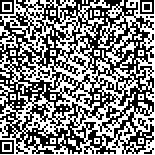| 摘要: |
| 目的 为把握热带农产品进口市场格局和供给效率,对中国热带农产品进口的市场竞争关系进行研究。方法 文章基于1992—2020年中国热带农产品进口贸易数据,以木薯、天然橡胶、咖啡和胡椒为研究对象,运用Rotterdam模型估计测算这4种热带农产品进口市场各来源国的进口需求弹性,实证分析中国热带农产品进口市场格局。结果 (1)中国热带农产品的进口来源较为集中,对泰国、越南、印度尼西亚、马来西亚等东盟国家的进口依赖程度相对较高;(2)木薯主要来源国之间的竞争性不强,中国对木薯有稳定的进口需求和进口来源地;(3)天然橡胶、咖啡和胡椒的进口来源国之间呈现出不同程度的市场竞争关系;(4)未来中国热带农产品进口需求对东盟国家依赖将进一步加深。结论 中国应充分把握双边贸易关系,重新审视并完善与东盟国家及地区农业国际合作战略,不断促进热带农产品进口来源地和贸易渠道的多元化,以保障热带农产品贸易安全。 |
| 关键词: 热带农产品 进口需求 市场格局 弹性 Rotterdam模型 |
| DOI:10.7621/cjarrp.1005-9121.20221117 |
| 分类号:F326.12 |
| 基金项目:国家重点研发计划“特色热带作物产业链一体化发展模式研究”(2020YFD1001205-1);中国农业科学院科技创新工程(10-IAED-08-2022、10-IAED-RC-04-2022) |
|
| CHINA'S TROPICAL AGRICULTURAL PRODUCT IMPORTS: A ROTTERDAM MODEL ANALYSIS |
|
Fu Dandan, Han Xinru, Wen Jinshang, Wang Xiudong
|
|
Institute of Agricultural Economics and Development, Chinese Academy of Agricultural Sciences, Beijing 100081, China
|
| Abstract: |
| This article aims to examine the competition in China's tropical agricultural product imports to investigate the market patterns and supply efficiency. Using the Rotterdam model, we empirically estimated the import demand elasticity of cassava, natural rubber, coffee, and pepper from different countries with data from 1992 to 2020. Results indicated the sources of China's tropical agricultural product imports were relatively concentrated with higher dependency on ASEAN countries, namely, Thailand, Vietnam, Indonesia, and Malaysia. Competition among China's major cassava import partners was low, indicating that China's demand and sources of cassava imports were stable. Competition among China's main import partners of natural rubber, coffee, and pepper was higher, and China's dependence on ASEAN countries for tropical agricultural product imports would escalate.Therefore, in order to ensure the safety of tropical agricultural product trade, China should maintain bilateral relations with ASEAN countries and further extend trade partnerships and channels. |
| Key words: tropical agricultural products import demand market pattern elasticity Rotterdam model |

